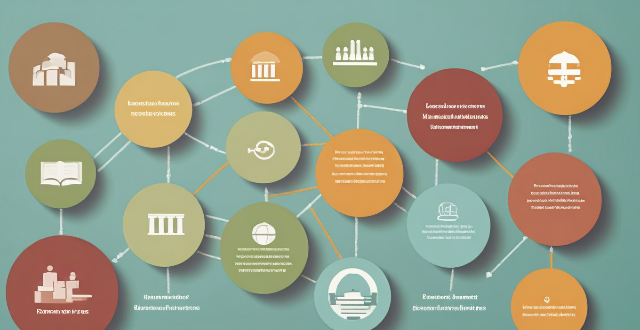Standards Legal

What are the potential consequences of ignoring food safety standards ?
Ignoring food safety standards can lead to health risks, legal issues, and damage to a company's reputation. The most immediate consequence is potential harm to human health, including foodborne illnesses, allergic reactions, and chronic health problems. Legal issues may arise from fines and penalties, lawsuits, and loss of business licenses. Ignoring food safety standards can also damage a company's reputation through loss of customer trust, negative publicity, and decreased sales. It is essential for all stakeholders in the food industry to prioritize food safety practices to protect public health, comply with legal requirements, and maintain a positive reputation.

What are the consequences of ignoring safety standards in construction work ?
Ignoring safety standards in construction work can lead to severe consequences, including risk to human life, project delays, financial losses, reputation damage, legal implications, environmental impact, and public safety concerns. Adhering to these standards is crucial for the well-being of all involved parties and the success of the project.

How do international standards and certifications affect industrial energy efficiency practices ?
International standards and certifications significantly influence industrial energy efficiency practices by setting uniform benchmarks, driving innovation, enhancing reputation, promoting transparency, supporting regulatory compliance, and leveraging resource efficiency. These standards provide a framework for continuous improvement, drive technological advancements, expand market opportunities, ensure accountability, align with policies, reduce waste, and offer cost benefits. As sustainability becomes a global priority, adherence to these standards will be crucial for industrial competitiveness and success.

What are the legal requirements for providing PPE to employees ?
Personal Protective Equipment (PPE) is essential in ensuring the safety and health of employees in various industries. Employers have a legal obligation to provide their employees with appropriate PPE, which must comply with specific regulations and standards set by organizations such as OSHA, the EU, Safe Work Australia, and CSA. Employers must conduct a hazard assessment, select appropriate PPE, ensure proper fit and comfort, provide training and education, and establish a system for maintaining and replacing PPE. By fulfilling these legal requirements, employers can help protect their employees from workplace hazards and promote a safe working environment.

How do building energy efficiency standards affect the construction industry ?
Building energy efficiency standards have a significant impact on the construction industry by affecting cost implications, design philosophy, regulatory compliance, and market trends. These standards require higher initial costs due to advanced technologies and materials but offer long-term benefits like reduced energy consumption and maintenance costs. They also shift the focus of design towards energy performance and sustainability, leading to integrated design processes and innovative solutions. Compliance with these standards is crucial to avoid penalties and legal issues, while certifications like LEED or WELL can provide a competitive advantage. Finally, building energy efficiency standards influence market trends by driving demand for sustainable construction methods and educating clients about their benefits.

Are there any legal requirements for installing a burglar alarm system ?
Legal Requirements for Installing a Burglar Alarm System Security is an essential aspect of modern life, and installing a burglar alarm system can significantly enhance the safety of homes and businesses. However, there are legal requirements that must be met before installing such systems. This article discusses the legal requirements for installing a burglar alarm system, including obtaining permits and licenses, checking insurance requirements, and adhering to local regulations and ordinances. By complying with these requirements, you can ensure that your burglar alarm system provides effective security while meeting all legal obligations.

How do wireless communication standards work ?
Wireless communication standards are essential for enabling seamless interactions between devices, and they operate within specific guidelines and protocols. These standards cover areas such as frequency bands, modulation techniques, multiple access methods, error handling, security measures, and compliance testing to ensure interoperability among various devices. Understanding these components is key to grasping how wireless technologies work together to create our interconnected world.

How do wireless communication standards affect mobile devices ?
Wireless communication standards significantly impact mobile devices' performance, functionality, and user experience. They influence speed and bandwidth, latency, connectivity range, compatibility with different networks, interoperability, security features, battery life, quality of service, mobility and portability, and device form factors. Advances in these standards drive innovation in the mobile industry, leading to faster, more reliable devices offering richer experiences to consumers.

What are the legal implications of failing to meet climate targets set by international agreements ?
Failing to meet climate targets set by international agreements can have significant legal implications, including liability for damages caused by climate change, violation of international law, and domestic legal consequences. These implications can vary depending on the specific agreement and jurisdiction in question, but some common consequences include public and private claims for damages, trade sanctions, loss of funding or aid, international dispute resolution, regulatory compliance, shareholder pressure, and reputational risk.

How do ESG standards affect corporate responsibility ?
ESG standards shape corporate responsibility by providing a framework for measuring and managing company impact on the environment, society, and governance. They require companies to reduce their carbon footprint, ensure sustainable sourcing, promote diversity and inclusion, engage with communities, maintain ethical business practices, and encourage board diversity. Adhering to these standards demonstrates commitment to sustainability and social responsibility, leading to long-term success and profitability.

What are the legal implications of using smart contracts ?
Smart contracts, self-executing contracts with terms written in code on a blockchain, raise legal questions about enforceability, jurisdiction, privacy, security, and regulatory compliance. Best practices include consulting a legal expert, clearly defining terms, considering jurisdiction, and prioritizing privacy and security.

How do building energy efficiency standards vary across different countries ?
The article discusses building energy efficiency standards and their global variations, influenced by factors like climate, economics, technology, government policies, and cultural preferences. It highlights the importance of these standards in sustainable development and reducing carbon emissions in the built environment. The text emphasizes that understanding these variations is essential for collaborative efforts and knowledge sharing as the global community strives towards decarbonization and sustainability goals.

How do building energy efficiency standards impact the environment ?
**Summary:** Building energy efficiency standards positively impact the environment by reducing greenhouse gas emissions, conserving natural resources, enhancing air quality, and promoting energy innovation. These standards lead to more energy-efficient buildings, reduced dependence on fossil fuels, cleaner air, and advancements in sustainable technologies.

What are the legal and policy frameworks for water resource management at the national and international levels ?
Water resource management is a critical issue that affects the sustainability of ecosystems, the economy, and human well-being. To address this challenge, various legal and policy frameworks have been established at both national and international levels. At the national level, water resource management is governed by a combination of laws, regulations, and policies aimed at ensuring equitable access to water resources, protecting the environment, and promoting sustainable development. International legal and policy frameworks play a crucial role in addressing transboundary water issues and promoting global cooperation on water resource management. Effective water resource management requires a comprehensive approach that encompasses both national and international legal and policy frameworks.

How do celebrities influence fashion trends and beauty standards ?
Celebrities significantly influence fashion trends and beauty standards through their endorsements, red carpet appearances, social media presence, and collaborations with designers. They set trends by making innovative style choices and promoting self-care and wellness. However, their influence is not without controversy, as some argue it leads to unrealistic beauty standards and cultural appropriation.

How do women entrepreneurs navigate the legal aspects of starting a business ?
Starting a business as a female entrepreneur involves navigating various legal considerations. This guide offers strategies for handling these aspects, including understanding legal frameworks, protecting intellectual property through trademarks and copyrights, drafting contracts, complying with employment laws, ensuring financial compliance, and managing risks with insurance. By addressing these components systematically, women entrepreneurs can establish a solid foundation for their businesses while minimizing legal risks and ensuring smooth operations.

What are the legal aspects to consider in credit management ?
Credit management involves various legal considerations, including contract law, consumer protection laws, privacy laws, bankruptcy laws, state and federal laws, and collections practices. Businesses must ensure that their contracts are legally binding, disclose all relevant information about their credit products, protect customer data, understand bankruptcy laws, comply with usury laws and licensing requirements, and adhere to the Fair Debt Collection Practices Act. By considering these legal factors, businesses can maintain strong relationships with their customers while minimizing financial risks.

How have building energy efficiency standards evolved over time ?
The evolution of building energy efficiency standards has been significant over the years, with a focus on reducing energy consumption and environmental impact. Early beginnings saw little consideration for energy consumption, leading to high utility bills and greenhouse gas emissions. The rise of energy conservation in the 1970s led to the development of the first building energy efficiency standards, focusing on measures such as improved insulation and efficient heating and cooling systems. The advent of green buildings in the 1990s brought new standards that minimized environmental impact through the use of renewable energy sources and sustainable materials. Technology has played a significant role in improving energy efficiency, with advances such as smart thermostats and LED lighting. Looking to the future, there is likely to be a greater emphasis on reducing energy consumption in buildings, leading to stricter standards and the development of new technologies. Overall, building energy efficiency standards have evolved to become an essential part of modern building design and construction.

Are there any international standards for carbon credit systems ?
There are several international standards and protocols that govern carbon credit systems, including the Climate Action Reserve (CAR), the International Carbon Reduction and Offset Alliance (ICROA), and regional and national standards such as the European Union Emissions Trading System (EU ETS) and the North American Carbon Programme (NACP). These standards ensure the credibility, transparency, and integrity of carbon offset projects by setting rigorous guidelines for project developers to follow. By adhering to these standards, organizations can demonstrate their commitment to combating climate change and contribute to a more sustainable future.

What legal resources are available for women who face discrimination or abuse ?
This text provides a summary of legal resources available to women who are facing discrimination or abuse. It outlines various government agencies that enforce laws related to gender-based discrimination and violence, non-governmental organizations that offer support and information, legal aid organizations that provide free or low-cost legal services, and online resources that offer legal information and self-help guides. The text emphasizes the importance of seeking help from these sources if one is experiencing any form of mistreatment or inequality based on their gender.

Can women serve on juries and hold positions of power within the legal system ?
The role of women in the legal system has evolved significantly over time. Women are now allowed and encouraged to serve on juries, bringing diversity of perspectives, increased trustworthiness, and improved decision-making. However, women still face challenges in achieving parity with men in holding positions of power within the legal system. Efforts such as affirmative action programs, mentorship programs, and flexible work arrangements have been implemented to address these issues.

How does the European Union approach climate change through its legal frameworks ?
The European Union has been at the forefront of addressing climate change through its legal frameworks. It has adopted a comprehensive and integrated approach that includes legislation, regulations, directives, and other legal instruments to mitigate greenhouse gas emissions and adapt to the impacts of climate change. This approach is based on the principles of sustainable development, prevention, polluter pays, and subsidiarity. Some key legal frameworks for climate change in the EU include the European Climate Change Programme, Emissions Trading System, Renewable Energy Directive, Energy Efficiency Directive, and Climate Action and Resilience Package. The implementation and enforcement of these legal frameworks are ensured through monitoring and reporting, evaluation and review, and enforcement actions. Despite facing challenges such as political will, technological innovation, and international cooperation, there are also opportunities for the EU to further strengthen its approach to climate change through legal frameworks by exploring innovative financing mechanisms, collaborative governance, and global leadership.

What are the legal implications of managing digital identities ?
Managing digital identities raises various legal implications including privacy laws, intellectual property rights, liability for misuse or breach, and compliance with industry standards. To ensure compliance, organizations must implement technical and organizational measures to safeguard personal information, obtain necessary permissions for proprietary information, mitigate liability risks through robust security policies, and adhere to identity management best practices.

What are the current building energy efficiency standards ?
The text discusses building energy efficiency standards, which are regulations and guidelines designed to reduce energy consumption. These standards promote sustainable development, reduce greenhouse gas emissions, and improve indoor air quality. The text lists seven key areas for improving energy efficiency: insulation and air tightness, heating, ventilation, and air conditioning systems, lighting systems, renewable energy sources, water efficiency, building materials and construction practices, and energy management and monitoring. Each area includes specific strategies and technologies that can be employed to increase energy efficiency.

Are there any legal requirements for installing a home security system ?
Home security systems are becoming increasingly popular as homeowners seek to protect their property and loved ones from potential threats. However, before installing a home security system, it is important to understand the legal requirements that may apply in your area. In this article, we will explore some of the key legal considerations when installing a home security system. Local ordinances and regulations, privacy laws, insurance requirements, and maintenance and upkeep are all important factors to consider when installing a home security system. By understanding these legal considerations, you can make informed decisions about protecting your property and loved ones while staying within the bounds of the law.

How do global ESG standards vary across different industries ?
Global Environmental, Social and Governance (ESG) standards are used by organizations to measure and manage their impact on the environment, society, and governance. These standards vary across different industries due to the unique challenges and opportunities each industry presents. In the energy industry, ESG standards focus on reducing greenhouse gas emissions, improving air quality, and promoting renewable energy sources. The financial services industry faces unique ESG challenges related to responsible investment, diversity and inclusion, and ethical business practices. Manufacturing companies face ESG challenges related to waste reduction, worker safety, and supply chain management. The healthcare industry faces unique ESG challenges related to patient safety, data privacy, and access to affordable healthcare. The technology industry faces ESG challenges related to digital security, privacy protection, and responsible innovation. By focusing on specific areas of concern within each industry, organizations can work towards creating a more sustainable future while also improving their overall performance and reputation.

What are the legal frameworks and policies supporting the establishment of ecological protection areas ?
The establishment of ecological protection areas is supported by various legal frameworks and policies that aim to conserve biodiversity, protect ecosystems, and promote sustainable development. These frameworks and policies are essential for ensuring the effective management and protection of ecological protection areas. Some key legal frameworks and policies supporting the establishment of ecological protection areas include international legal frameworks such as the Convention on Biological Diversity (CBD) and the United Nations Convention to Combat Desertification (UNCCD), national legal frameworks such as National Biodiversity Strategies and Action Plans (NBSAPs) and national environmental policies, regional legal frameworks such as regional conservation agreements, and sector-specific legal frameworks such as forestry laws and regulations and wildlife conservation laws and regulations. When establishing ecological protection areas, it is essential to follow best practices such as conducting thorough scientific research, engaging local communities in the planning and management process, developing clear management plans, monitoring ecological protection areas regularly, and promoting sustainable tourism activities within them.

What are the OSHA standards for electrical safety in the workplace ?
OSHA has established standards for electrical safety in the workplace to protect employees from hazards associated with electricity. These standards cover training, lockout/tagout procedures, arc flash hazard protection, grounding and bonding, and maintenance of electrical wiring and equipment. Specific requirements vary depending on the type of workplace, such as construction sites, industrial settings, and office environments. By following these standards and implementing appropriate controls, employers can create a safe work environment and reduce the risk of electrical accidents and injuries.

What legal considerations should fans be aware of when planning a support event for an artist ?
When organizing a support event for an artist, fansWhen organizing a support event for an artist, fans avoid infringement of fans must consider legal aspects to avoid infringement of rights and unintended issues. Key considerations include intellectual property rights such as music copyright and trademarks; public performance licenses; venue agreements; necessary permits and regulations; privacy and consent; liability and insurance; transparent promotion and marketing; and clear ticketing policies. Consulting with legal professionals is recommended to ensure all aspects are legally sound.

What is the cost of meeting building energy efficiency standards for homeowners and builders ?
Meeting building energy efficiency standards is crucial for reducing energy consumption and promoting sustainability, but it comes with certain costs that both homeowners and builders need to consider. The initial investment includes design and planning fees, high-performance windows and doors, insulation, energy-efficient appliances, skilled tradespeople, and additional time. Ongoing maintenance and operation costs include utility bills, potential tax credits and rebates, regular inspections, repairs, and replacements. Despite the costs, meeting these standards offers benefits such as reduced carbon footprint, improved air quality, health and comfort, lower utility bills, and increased property value.